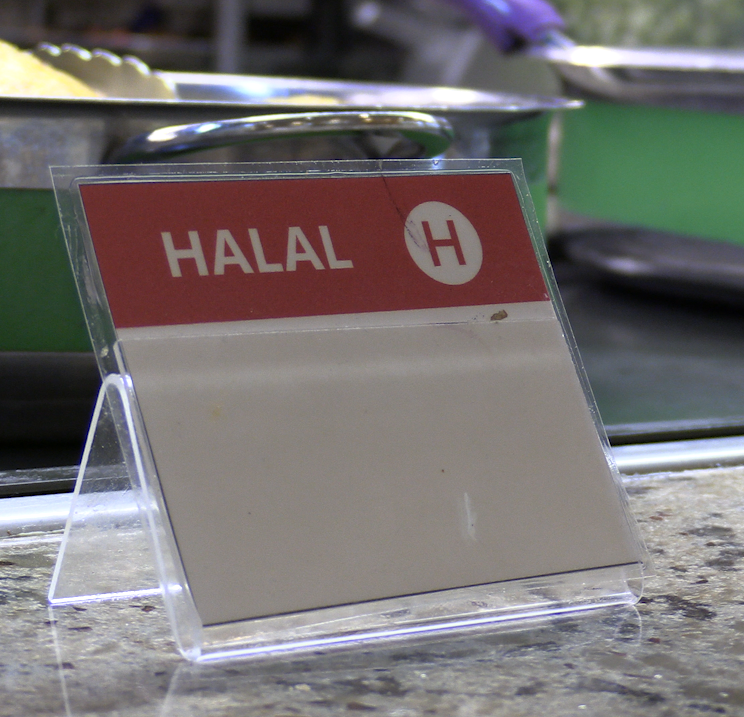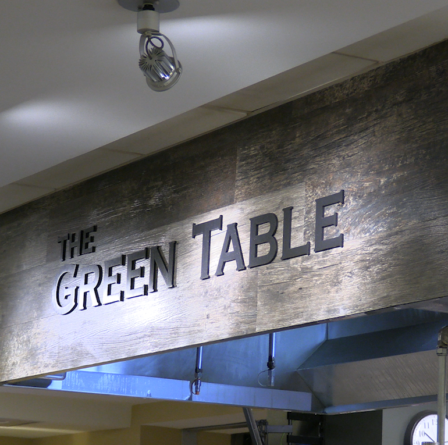By: Elena Thompson
FAYETTEVILLE, Ark. (UATV)- Students on campus find increased access to halal food over the course of their college careers.
For many students at the University of Arkansas, finding dining options on campus is a no-brainer. Other members of the campus community have to take more care when finding their dining options. Many students eat religiously restrictive diets such as Kosher or Halal.
One student at the University of Arkansas, Sherjeel Naeem, said that he never expected his needs to be accommodated.
“I didn’t expect anyone to accommodate my needs, which is a very, very common thing for any minority population,” Naeem said.
Naeem is a senior on campus who eats a Halal diet. He said that part of this expectation comes from growing up in a small southern town. Growing up in Greenwood Arkansas, Sherjeel said often his needs were not accommodated.
Eating Halal means eating a diet that adheres to Islamic law. Islam is the second largest religion in the world, and Muslims in Arkansas account for roughly three percent of the population.
Under Islamic law, not all foods are permittable. Anything that alters the nervous system, such as alcohol, is prohibited. Additionally, carnivorous animals, birds of prey, and any meats that are not killed and stored within halal guidelines are not permitted to eat.
All meats that are permissible under Islamic Law must be killed with specific slaughtering methods. Each animal must be killed a certain way that drains all its blood, which is considered a more humane way of killing. Additionally, each animal must be killed in the name of Allah. When transporting and preparing halal food, they are not able to come into contact with non halal items.
A person who eats halal must eat a diet that is coherent with
these laws. For Naeem, his early years on campus were more difficult than the later ones.
“I never expected them to cater to my needs,” Naeem said. “That’s something that’s very common within any minority group.”
Because of this, Sherjeel said he learned to adapt. When he came to campus, he ate a predominantly vegetarian diet.
“[I ate] seafood and veggies and that’s pretty much it,” Naeem said.
Naeem said he noticed a shift going into his junior year in.
“It wasn’t until my junior year, last year, where they actually started putting stuff into place where people that wanted to follow that diet could,” Naeem said.
In 2022, Adnan Alrubaye, a poultry science microbiology professor, helped to bring increased halal options to campus.
“It started back when I was a student here on campus trying to look for food options I can eat,” Alrubaye said.
Like Naeem, Alrubaye also ate a predominantly vegetarian diet when he was a student.
“I used to claim I’m a vegetarian, when I’m not, because there were no meat options on campus for me,” Alrubaye said. “I’m a Muslim, we eat halal.”
Alrubaye said it was important to bring increased diversity to campus dining options.
“I also encourage them to try to expand their menu to meet all other countries,” Alrubaye said. “We have faculty and students from 120 countries on campus and there are some dietary requirements that some faculty and students and staffs specifically from international origins that [aren’t found] here on campus.”
Alrubaye said Chartwells, the dining facilities on campus, were accepting and helpful when bringing more halal options to campus.
The Chartwells Director of Nutrition and Wellness, Andie Montgomery, said that the dining facilities on campus try to accommodate a large number of students.
“We know that we have a diverse student population, and we try to listen to that and accommodate that. So, with halal-based eating, a committee was formed last year that got to voice what they wanted from our dining halls.”
In both the 1021 and Fulbright dining halls, there are Green Tables. Green Tables are stations in the dining halls specifically for students with food allergies/restrictions. The space is designed to eliminate cross contamination. Each table offers vegetarian, vegan, gluten-free, and halal dining options.
“Our Green Tables are designed to help our students that have allergens,” Montgomery said. It avoids the top nine allergens and gluten. Most of the time, those menus are just a healthy option too. It’s a good protein plus a clean veggie.”
In addition to Green Tables, one location on campus offers exclusively halal prepared food options: Curry Corner. Montgomery said Professor Alrubaye was a big part of bringing that option to campus.
“Curry Corner was kind of birthed from that committee that wanted more halal options on campus,” Montgomery said. “And so, all their chicken, all their protein is halal based. And so there’s options constantly on campus.”
Alrubaye said having diverse food options on campus is essential for the community.
“Food is an important thing that kind of brings people together and helps them feel that they belong,” Alrubaye said. “It’s feeling that you are included.”




